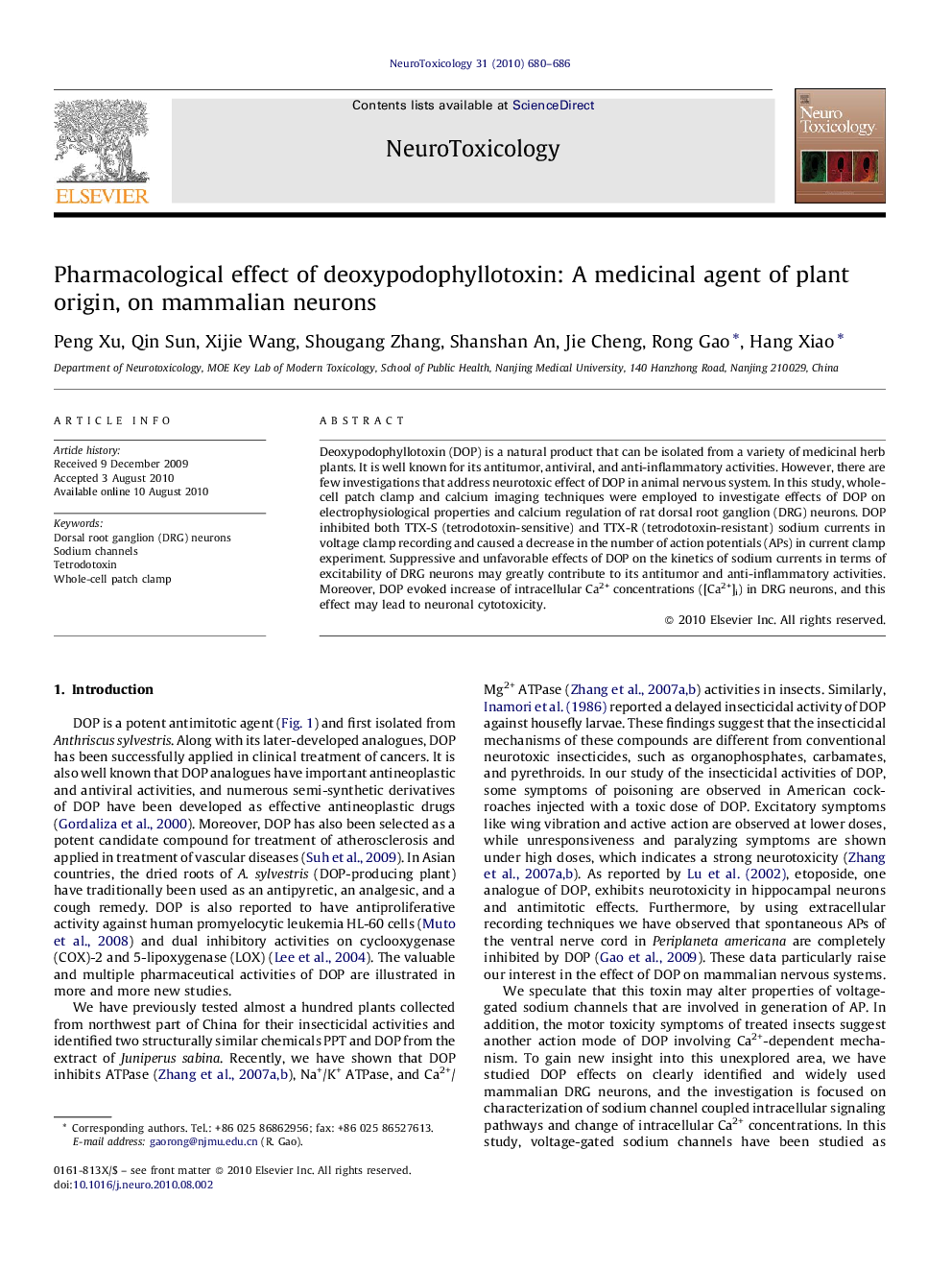| Article ID | Journal | Published Year | Pages | File Type |
|---|---|---|---|---|
| 2590561 | NeuroToxicology | 2010 | 7 Pages |
Deoxypodophyllotoxin (DOP) is a natural product that can be isolated from a variety of medicinal herb plants. It is well known for its antitumor, antiviral, and anti-inflammatory activities. However, there are few investigations that address neurotoxic effect of DOP in animal nervous system. In this study, whole-cell patch clamp and calcium imaging techniques were employed to investigate effects of DOP on electrophysiological properties and calcium regulation of rat dorsal root ganglion (DRG) neurons. DOP inhibited both TTX-S (tetrodotoxin-sensitive) and TTX-R (tetrodotoxin-resistant) sodium currents in voltage clamp recording and caused a decrease in the number of action potentials (APs) in current clamp experiment. Suppressive and unfavorable effects of DOP on the kinetics of sodium currents in terms of excitability of DRG neurons may greatly contribute to its antitumor and anti-inflammatory activities. Moreover, DOP evoked increase of intracellular Ca2+ concentrations ([Ca2+]i) in DRG neurons, and this effect may lead to neuronal cytotoxicity.
